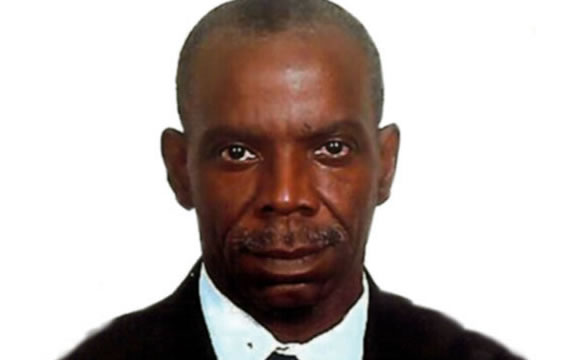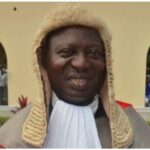
If you wonder why debutant senator and ex-governor of Zamfara State, Abdul’Aziz Yari, desperately wanted to be Senate President, look no further than the emergence of Tajudeen Abbas as Speaker, House of Representatives and Jibrin Barau of Kano North senatorial district as Deputy Senate President of the 10th National Assembly.
The back-and-forth between the northern Nigerian political establishment and southern Nigeria is probably a struggle between conservative Nigeria and the pseudo-progressives who are closet conservatives.
After conceding the presidency to the South, the northern Nigeria political establishment wanted archconservative North-West Nigeria to head the legislature, to checkmate any radical restructuring that President Bola Tinubu may be having up his sleeves.
If Barau cannot prevent President Tinubu from winging constitutional amendments that do not favour northern oligarchs, from a Senate headed by southern Nigerian Godswill Akpabio, he will be checkmated by Speaker Abbas, who is representing Zaria Federal Constituency of Kaduna State.
Thus the powers of the presidency that the northern political establishment seemingly conceded to the South with one hand, will be taken back with the legislative hand of Speaker Abbas, great-grandson of a Zaria Emir of the Mallawa dynasty.
This is straight from the rule book of Henry Kissinger, protagonist of America’s diplomatic zero-sum game, where your loss is the gain of your traducer. Protest writer, Franz Fanon, would have said that your oppressors are rich because you are poor.
Section 58 of Nigeria’s 1999 Constitution provides that “The power of the National Assembly to make laws shall be exercised by both the Senate and the House of Representatives, and .. assented to by the President.”
So, any southern Nigerian who thinks President Tinubu is going to pull a radical constitutional restructuring rabbit out of his political magic bag may have to think again. Those members of the northern political establishment, who openly admit that they live on political power-mongering, won’t make it an easy ride at all.
Senator Ali Ndume, representing Southern Borno senatorial district, explained how the game of parliamentary subterfuge is played in the legislative houses by presiding officers who may have interest in issues that are up for discussion. He reveals, “The presiding officers have a smart way of doing things…. If they look round, is Ndume around, or whoever is going to be critical? If they are not around, he brings supplementary order papers. And it goes out like that.”
This suggests that whatever legislative presiding officers want can easily become law. But also, whatever they consider to be against their interest or that of their region will be stood down by taking advantage of loopholes in the legislative processes of their respective chambers of the National Assembly.
That was how Senator Ndume explained the highly disputed ratification of the conversion into long-term loan, the short-term Ways and Means loan that the Central Bank of Nigeria’s Godwin Emefiele recklessly extended to President Muhammadu Buhari’s debt-loving government. All it took was the buy-in of a conniving Senate President.
The end, as protagonist of political brinkmanship Nicolo Macciavelli says, justifies the means. Despite the hue and cry of the media and some lawmakers who had a level of decency, President Buhari had his way, even close to the twilight of the pliant 9th National Assembly.
Sometime ago when the then Minister of Niger Delta Affairs, Godswill Akpabio, was exposing the shenanigans of some lawmakers who were interrogating him, the Chairman of the Committee used his prerogative to ask Akpabio to “Off his mic,” and stop further sordid revelation about how the hands of lawmakers got stuck in the cookie jar of contracts in the Niger Delta Development Commission.
See the unusually cumbersome process by which Section 9 says the Constitution can be amended: “The National Assembly may… not alter the Constitution unless the purpose is supported by the votes of not less than two-thirds majority of all the members of each House,” though neither the northern Nigeria nor southern Nigeria has two-thirds of membership of the National Assembly.
Also, the amendment must “also be approved by the resolution of the Houses of Assembly of not less than two-third of all states,” though neither northern Nigeria nor southern Nigeria has two-thirds of the states in the federation.
But generally, Nigerian politicians do not think or care about the interest of Nigeria as a whole. All they care about is their own personal, ethnic or regional interest. If you don’t believe this assertion, please read the following account from Dr. Farooq Kperogi, a columnist with Daily Trust:
“Interestingly, when I discussed (President) Tinubu’s (Jagaban) Borgu title with my paternal uncle a few days ago, he jokingly wondered if (President) Tinubu was aware that he was shirking the duties his title required of him by removing fuel subsidies, which has multiplied the deprivation of border communities such as Borgu,” in Benin Republic.
According to Kperogi, “Ancient Borgu stretched from what is now Northeastern Benin Republic (where Borgu State exists), to present-day Baruten and Kaiama Local Governments of Kwara State; and Bagudo and Dandi Local Governments in Kebbi State.”
Such sentiments as recorded by Kperogi just go to show that some Nigerians may not quite be Nigerian in their orientation. And so they may not necessarily be looking out for the interest of Nigeria, their country, but the interest of their ethnic nationalities, wherever it may stretch.
Recall the answer of President Buhari when the team of Arise News TV journalists, led by Dr. Reuben Abati, asked him why he thought it was necessary to construct a railway line that is not likely to be profitable, from Kano to Maradi, in Niger Republic.
President Buhari told them, straight up, and without batting an eyelid, that he had first cousins in Niger Republic. Everyone now knows that his father was a Nigerien, who reportedly came to sell duck in Daura, which is less than 9 kilometres South of Nigeria-Niger Republic border.
So, whatever the denizens of the northern Nigerian political establishment determine is their interest practically becomes the national interest, to all intents and purposes. This is akin to the aphorism of W.I. Thomas and his wife, Dorothy, who said that “If men define situations as real, they are real in their consequences.”
The contest for Nigeria’s political space between the Islamic Middle-Eastern orientation of northern Nigeria and the Judeo-Christian traditions of southern Nigeria may take a lot of time and work to eliminate.
The first Governor-General, Lord Frederick Lugard, who allowed the two political cultures to grow pari passu in Nigeria, is the architect of this confusion and needless agony that Nigerians on the two cultural and political divide are going through.
You could almost conclude that Lord Lugard deliberately planted and nurtured this divisive seed of discord to ensure that Nigeria will never progress and never know peace! As a result, Nigeria’s politics became a continuously tenuous political trajectory, in a loop of one step forward, two steps back.
What the President may need to do, if he doesn’t want his campaign manifesto to end up as mere intentions in the dustbin of time, is to actively cultivate those who may not quite appreciate that when everyone moves in sync, everyone wins. This may sound pessimistic, but it’s probably not yet creation day for Nigeria’s restructuring.













